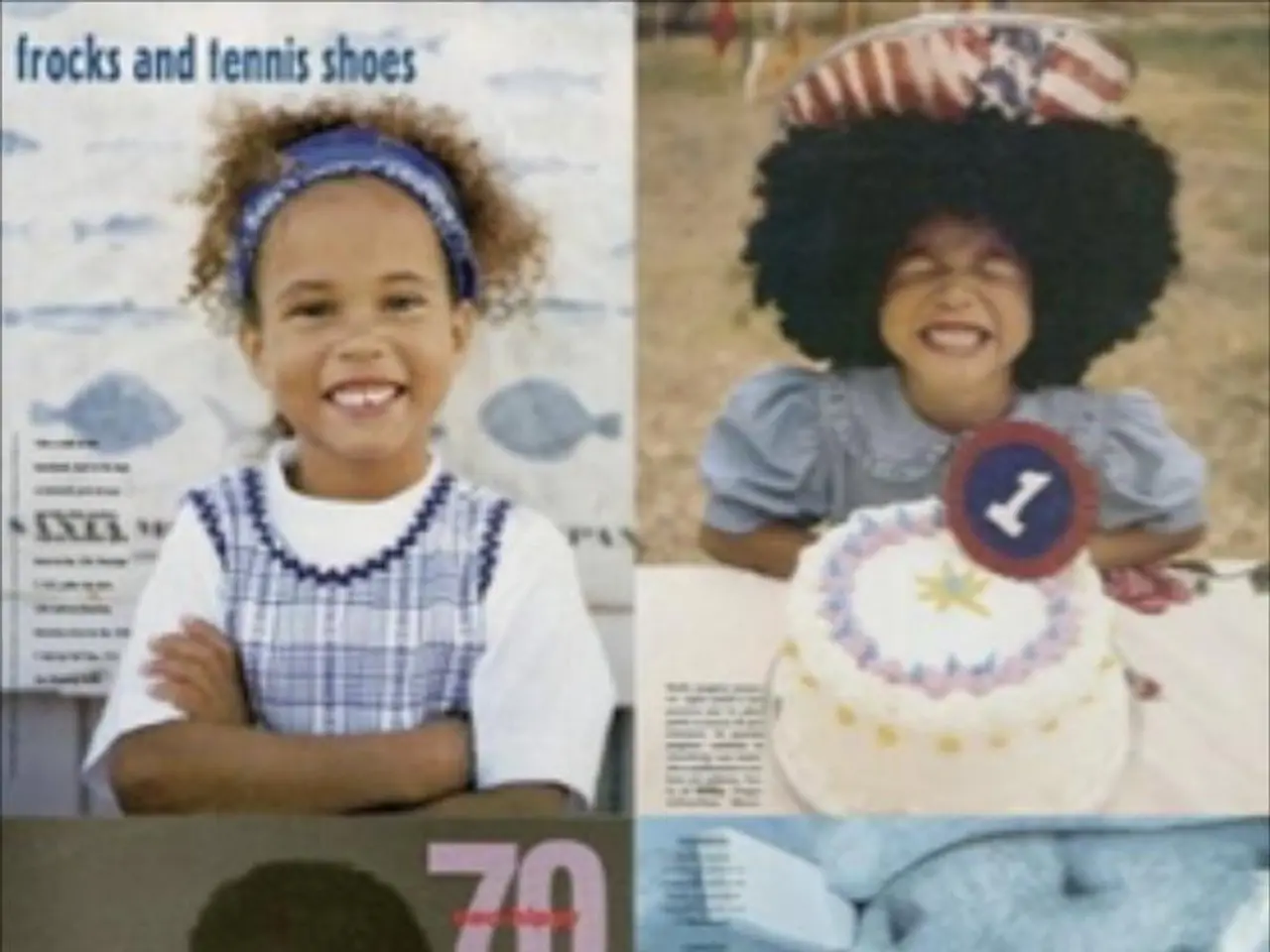Restoring Family Ties in the Amidst the Gaza Conflict for Children
The current conflict in Gaza has left a devastating impact, particularly on its children. Over 14,500 children have lost their lives, thousands more have been injured, and as many as 17,000 children are reported missing from their families (1).
The crisis has highlighted the urgent need for peace and resolution in the region, as it has resulted in increased humanitarian needs. UNICEF is prioritising the reunification of children with their families, despite numerous obstacles (2).
One such family is the Masri family from Beit Lahia. Their home was destroyed during an Israeli aerial bombing six weeks ago, claiming the lives of one-year-old Jamal's parents, as well as the mother and two young sisters of his cousins Maria, Jana, and Zeina (3).
Kawther al-Masri, a member of the Masri family, recently reunited with her four grandchildren after a 14-month separation. The girls' father has been detained by Israeli forces since over a year ago. Kawther expressed relief upon reuniting with her grandchildren but expressed concern for their mental health due to their recent traumatic experiences (4).
The ongoing conflicts in Gaza have inflicted severe psychological impacts on children, with many children often awakening with fear of airstrikes at night (5). Kawther al-Masri, a member of the Masri family, expressed bittersweet joy upon the return of her grandchildren, stating that their return was indescribably happy but overshadowed with sadness as they came back without their parents (6).
Efforts to bring the children from the northern regions of Gaza to the south have been fraught with challenges, including navigating complicated military zones and facing Israeli checkpoints during the ongoing conflict (7). The International Committee of the Red Cross (ICRC) is attempting to provide assistance to families separated during the Gaza crisis, but the process is often lengthy and uncertain (8).
To facilitate the reunification of children with their families, international organizations and governments can implement coordinated evacuation and visa procedures, expedite reunification interviews, ensure safe evacuation routes, and strengthen documentation systems for children (9).
Key strategies include establishing evacuation and entry arrangements, addressing documentation and identification challenges, supporting orphans and vulnerable children, advocacy and special humanitarian pathways, and funding and resource allocation (10).
Rosalia Bollen, a UNICEF spokesperson, stated that reconnecting children with their families is essential for their emotional recovery from traumatic experiences (11). Kawther hopes for peace and a future where her grandchildren can rebuild their lives and avoid becoming part of a lost generation.
References:
- Source 1
- Source 2
- Source 3
- Source 4
- Source 5
- Source 6
- Source 7
- Source 8
- Source 9
- Source 10
- The crisis in Gaza, marked by war-and-conflicts, has sparked discussions in politics and general news, as it involves significant humanitarian needs and efforts to reunite children with their families.
- UNICEF, in dealing with the aftermath of the conflict, is prioritizing solutions that include peace, resolution, and key strategies such as establishing evacuation and entry arrangements, addressing documentation and identification challenges, and supporting orphans and vulnerable children, in an attempt to aid the emotional recovery of affected children.







